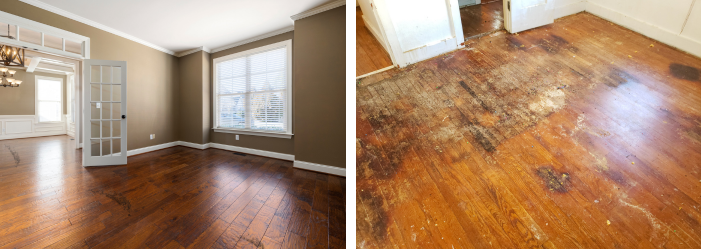Florida Security Deposits: What Can Your Landlord Deduct?
That moment when you're moving out of a Florida rental and anticipating the return of your security deposit can quickly turn into frustration if your landlord starts itemizing deductions. A common point of contention? Deductions for what the law considers "normal wear and tear." Understanding your rights in Florida is crucial to protecting your hard-earned money.
Defining "Normal Wear and Tear" in Florida:
In Florida, "normal wear and tear" generally refers to the natural deterioration of a property that occurs over time due to regular, intended use. Think of it as the expected aging of the premises.
- Examples include: Faded paint from sunlight, loose door hinges from regular use, slightly worn carpet in walkways, minor scuffs on walls, and the gradual discoloration of bathroom or kitchen fixtures.
This is different from damage, which results from negligence, carelessness, accidents, or abuse by the tenant or their guests.
- Examples of damage include: Large holes punched in walls, broken windows, significant and unremovable stains on carpets, missing or intentionally damaged fixtures, and pet damage beyond typical shedding.
Florida Law and Your Security Deposit:
Florida Statutes, particularly Chapter 83, Section 83.49 concerning Landlord and Tenant, outlines the rules for security deposits. Landlords in Florida are legally required to hold your security deposit in a separate account and must notify you in writing within 30 days of your move-out if they intend to claim any portion of your deposit. This notice must detail the reasons for the claim and the estimated cost of repairs.
Crucially, Florida law dictates that landlords can only deduct from the security deposit for damages to the property beyond normal wear and tear. This means your landlord cannot legally charge you for the expected decline in the property's condition due to ordinary use.
What's Typically NOT Deductible (Normal Wear and Tear):
- Minor paint fading or cracking due to sunlight.
- Small nail holes from picture hanging.
- Slightly worn carpet in high-traffic areas.
- Loose handles or knobs from regular use.
- Slightly dirty grout from normal use.
What IS Typically Deductible (Damage):
- Large, noticeable stains or burns on carpets or flooring.
- Broken appliances due to misuse.
- Clogged drains caused by tenant negligence.
- Significant holes in walls.
- Pet urine stains or damage to flooring/walls.
Fighting Wrongful Deductions:
If you believe your Florida landlord has unfairly deducted from your security deposit for normal wear and tear, here’s what you can do:
- Review your lease: Check for any specific clauses regarding security deposits and wear and tear.
- Document everything: Did you take photos or videos when you moved in and out? This is crucial evidence.
- Send a written dispute: Within 15 days of receiving your landlord's notice of intent to claim, send a certified letter disputing the deductions you believe are for normal wear and tear.
- Consider small claims court: If you and your landlord can't reach an agreement, you can file a case in small claims court to recover your deposit.
- Seek legal advice: If the amount is significant or the situation is complex, consulting with a tenant rights attorney can be beneficial.
Key Takeaway for Florida Renters:
Know your rights! Florida law is on your side when it comes to normal wear and tear on your rental property. Don't let your landlord unfairly charge you for the expected aging of your home.
Conclusion:
Understanding Florida's security deposit laws is vital for every renter. If you're facing a dispute over security deposit deductions, especially those you believe are for normal wear and tear, don't hesitate to reach out to the experienced legal team at Korte & Associates. We can help you understand your rights and navigate these often-complex situations.
Protect Your Security Deposit Today
If you're in a dispute with your landlord over security deposit deductions, Korte & Associates can help.
Contact Us for a ConsultationFurther Resources: For more in-depth information, refer to The Florida Bar's Guide to Landlord and Tenant Rights.



